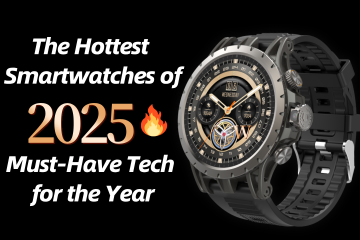Smartwatch Innovations in 2024: What You Need to Know About Sports Monitoring
As technology continues to advance at a rapid pace, smartwatches have become integral tools for athletes and fitness enthusiasts. The year 2024 has introduced remarkable innovations in smartwatch technology, particularly in the realm of sports monitoring. With a focus on enhancing performance, tracking metrics accurately, and promoting overall well-being, these devices have evolved to meet the diverse needs of users. In this article, we will delve into the latest advancements in smartwatch sports monitoring, exploring features, benefits, and the impact on athletic training.
- The Evolution of Sports Monitoring in Smartwatches
- Advanced Biometric Sensors
- Advanced Motion Sensors
- AI-Powered Performance Analytics
- Injury Prevention Analytics
- Improved GPS and Route Tracking
- Comprehensive Recovery Monitoring
- Social Features and Community Engagement
- Integration with Third-Party Apps
- The Future of Sports Monitoring
- Conclusion
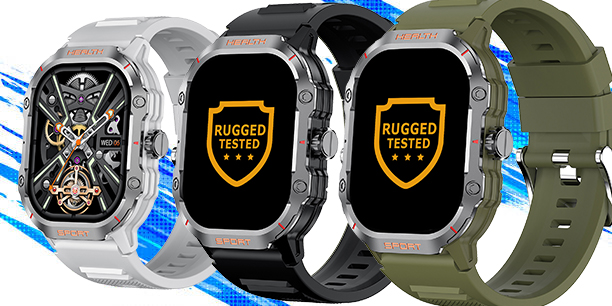
The Evolution of Sports Monitoring in Smartwatches
Smartwatches have come a long way since their inception. They primarily functioned as fitness trackers, measuring basic metrics like steps taken and calories burned. However, as consumer expectations grew and technology advanced, manufacturers began integrating more sophisticated sensors and features. By 2024, smartwatches have evolved into comprehensive sports monitoring devices capable of tracking various metrics, offering personalized insights, and even preventing injuries. Integrating artificial intelligence, enhanced sensors, and improved connectivity has paved the way for a new era in sports technology.
Advanced Biometric Sensors
One of the cornerstones of effective sports monitoring is accurate biometric data. In 2024, smartwatches have seen significant improvements in sensor technology that enable precise tracking of a wide range of physical metrics.
- Multi-Sport Heart Rate Monitoring
Heart rate monitoring has become a standard feature in most smartwatches, but technological advancements have elevated this function. Modern smartwatches have advanced optical sensors that provide real-time heart rate data, even during high-intensity workouts. This includes the ability to measure heart rate variability (HRV), which is crucial for assessing recovery and overall fitness.
Heart Rate Variability (HRV) is the variation in time between heartbeats. A higher HRV generally indicates better cardiovascular health and resilience to stress, while a lower HRV can signify fatigue or potential overtraining. With real-time HRV tracking, athletes can gain insights into their recovery status and adjust their training accordingly.

Advanced Motion Sensors
In addition to heart rate monitoring, smartwatches feature motion sensors, including accelerometers, gyroscopes, and barometers. These sensors provide detailed insights into movement patterns, allowing for more accurate athletic performance assessments.
For example, these sensors can track stride length, cadence, and elevation changes during a running session. This information is invaluable for runners looking to improve their form and efficiency. Cyclists can also benefit from these advancements, as smartwatches can analyze power output and pedal cadence, providing insights to enhance cycling performance.

AI-Powered Performance Analytics
The integration of artificial intelligence (AI) has revolutionized how sports data is analyzed. In 2024, many smartwatches have sophisticated algorithms that offer personalized insights based on users' historical performance data.
- Personalized Training Plans
AI-driven performance analytics can create tailored training regimens that consider an athlete's fitness level, goals, and training history. These dynamic plans adjust in real-time based on user feedback and performance metrics. For instance, if a user is consistently outperforming their targets, the smartwatch may suggest increasing the intensity of workouts to promote continued progress.
Additionally, AI can analyze training loads and recovery times, helping athletes optimize their schedules to prevent overtraining. By providing personalized feedback and recommendations, smartwatches empower athletes to make informed decisions about their training.

Injury Prevention Analytics
Injury prevention is a critical aspect of sports training, and smartwatches have begun to play a role in this area as well. By analyzing biomechanics and movement patterns, smartwatches can identify potential injury risks.
For instance, if an athlete's running form shows signs of abnormal movement—such as excessive pronation or improper foot placement—the smartwatch can alert the user to adjust their technique. This proactive approach can help athletes make necessary changes before injuries occur, allowing for safer and more effective training.
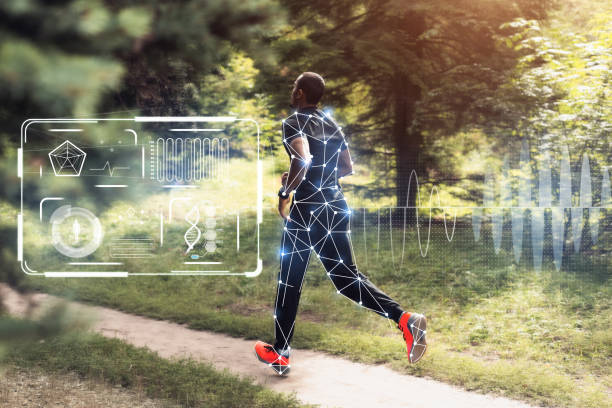
Improved GPS and Route Tracking
For outdoor athletes, accurate GPS tracking is essential. Innovations in GPS technology have made it possible to achieve improved accuracy and functionality in 2024 smartwatches.
- Dual-Frequency GPS
Many smartwatches now come equipped with dual-frequency GPS, which enhances tracking accuracy, particularly in challenging environments such as urban areas with tall buildings or dense forests. This technology significantly reduces the likelihood of GPS signal interference, ensuring that distance, pace, and route data are reliable.
For runners and cyclists, this means they can accurately monitor their performance without worrying about GPS inaccuracies affecting their metrics. Dual-frequency GPS provides a more robust tracking experience, allowing athletes to focus on their training without distractions.
- Real-Time Route Mapping
Modern smartwatches often include advanced mapping features that allow athletes to create and save custom routes. This capability is particularly beneficial for those who enjoy exploring new terrains or participating in events in unfamiliar locations.
Real-time route mapping not only provides turn-by-turn navigation but also includes elevation data. This information is invaluable for athletes training in hilly areas, as it allows them to prepare for the demands of elevation changes during races.

Comprehensive Recovery Monitoring
In 2024, smartwatches have placed a greater emphasis on recovery monitoring, recognizing that recovery is just as important as training.
- Sleep Tracking Enhancement ts
Sleep is a critical component of recovery, and advancements in sleep-tracking technology have made it easier for athletes to monitor their sleep quality. Smartwatches now offer insights into sleep stages—light, deep, and REM sleep—allowing users to understand their sleep patterns better.
By analyzing sleep data, smartwatches can provide personalized recommendations for optimizing sleep quality. For example, if a user consistently experiences disruptions in deep sleep, the device might suggest adjustments to bedtime routines or environmental factors.
- Recovery Scores
Some smartwatches calculate a recovery score based on various metrics, including heart rate, sleep data, and activity levels. This score helps athletes gauge their readiness for training and make informed decisions about their workouts. If an athlete's recovery score is low, the smartwatch may recommend a lighter training day or additional rest. Integrating recovery monitoring features, smartwatches empower athletes to prioritize recovery, reducing the risk of burnout and injuries.

Social Features and Community Engagement
In 2024, the social aspect of sports monitoring has gained traction, encouraging motivation and engagement among users.
- Challenges and Leaderboards
Many smartwatches now support social features that allow users to participate in challenges with friends or join community events. Leaderboards foster friendly competition, motivating users to push their limits and achieve their goals.
Participating in challenges can also create a sense of accountability. When users know their friends are tracking their progress, they may be more inclined to stay consistent with their training.
- Live Tracking for Events
During competitive events, smartwatches can provide live tracking for friends and family. This feature allows supporters to monitor an athlete's progress in real-time, enhancing the sense of community and support.
Live tracking is especially valuable during races, as it allows spectators to cheer on participants at the right moments. This connection between athletes and their supporters adds a layer of motivation, making events even more enjoyable.

Integration with Third-Party Apps
In 2024, smartwatches increasingly support integration with third-party fitness and health apps, broadening their functionality.
- Customizable Dashboards
Users can personalize their smartwatch interfaces with widgets from their favorite fitness apps, providing quick access to essential metrics and performance data. This customization allows athletes to tailor their devices to suit their training styles and preferences.
For example, a runner might prioritize pace and distance metrics, while a cyclist may focus on power output and cadence. Customizable dashboards enhance the user experience, making it easier to monitor the metrics that matter most.
- Seamless Data Sharing
Enhanced connectivity allows for smooth data sharing between devices, enabling athletes to compile comprehensive performance histories across platforms. This feature is particularly beneficial for those who use multiple fitness apps to track different aspects of their training. Seamless data sharing gives users a holistic view of their fitness journey, enabling more informed decision-making and better progress tracking.
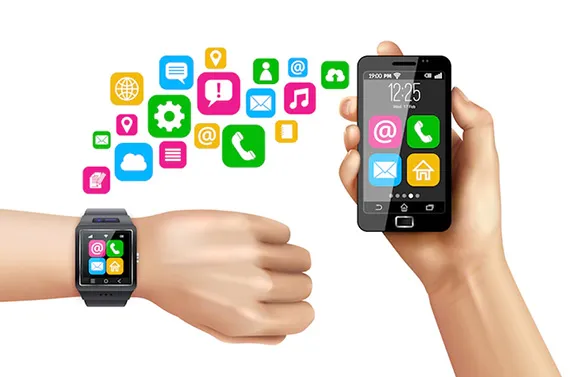
The Future of Sports Monitoring
As technology advances, the future of sports monitoring in smartwatches looks promising. Here are some trends and potential innovations we might see in the coming years:
- Greater Focus on Mental Health
As awareness of mental health grows, smartwatches may begin to incorporate features that monitor stress levels and emotional well-being. This could involve tracking physiological responses to stressors, such as changes in heart rate and sleep patterns.
- More Accurate Sensors
Developing new materials and sensor technologies may lead to even more accurate tracking capabilities. This could include improvements in heart rate sensors, skin temperature sensors, and other biometric monitors.
- Enhanced Personalization
As AI continues to evolve, smartwatches may offer even more personalized recommendations for training, recovery, and nutrition based on a user’s unique data profile. This level of customization could revolutionize how athletes approach their training.
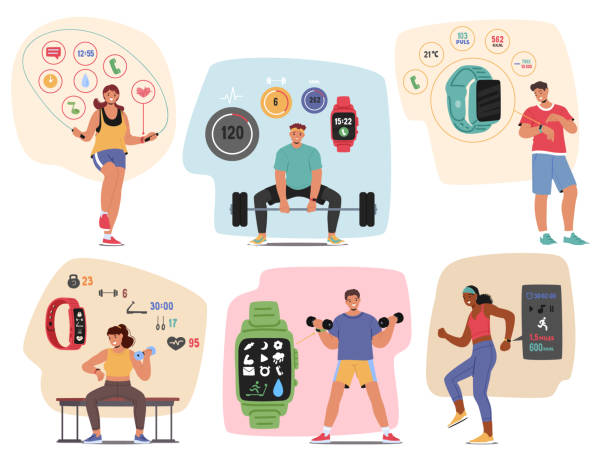
Conclusion
The innovations in smartwatch technology for sports monitoring in 2024 represent a significant leap forward in how athletes track and optimize their performance. With advanced biometric sensors, AI-powered analytics, improved GPS capabilities, and community engagement features, these devices have become essential tools for athletes at all levels.
As we move forward, the integration of cutting-edge technology will continue to enhance the capabilities of smartwatches, empowering athletes to reach their full potential. Whether you are a seasoned competitor or just starting your fitness journey, the advancements in sports monitoring offered by smartwatches will play a crucial role in helping you achieve your goals and maintain a healthy.


